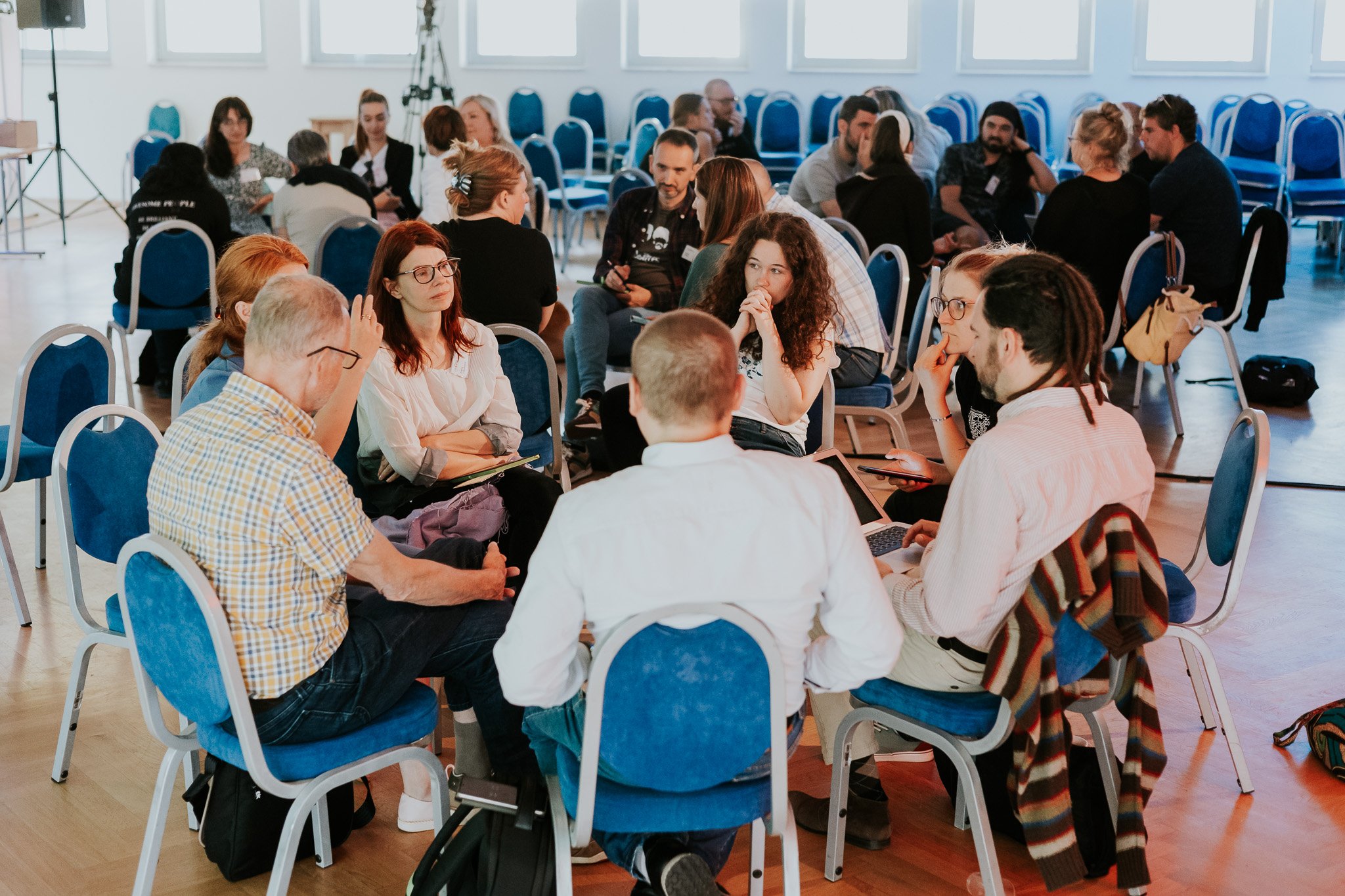
We were invited to present the Youth Pool at the 2nd European Academy on Youth Work!
The event took place from 31st May – 3rd June 2022 in Slovenia and offered a space for reflection, discussion and networking for around 150 stakeholders in European youth work about innovation in the field as a response to current needs and developments and future trends.
The 2nd European Academy of Youth Work gave emphasis on learning about the mechanisms that can spark, sustain and support innovation in youth work as a response to the challenges and fast-changing realities faced by societies and young people in Europe.
Youth Pool was presented by Amerissa Giannouli during the session called “Looking at innovative practices with a focus on Going digital, staying human?”. Our initiative was presented together with another initiative from Sweden by Awesome People. With our presentations, we aimed to inspire the audience to think about the culture of innovation we wish to promote as youth workers.
On our panel, we also discussed about youth work and innovation in groups. Here are the main questions discussed.
- Which challenges do we usually face when trying to upscale an “innovative” practice?
- Which are the factors fundamental for upscaling an innovative process/practice?
- How can we really introduce something very different (innovative) into the understanding of what youth work is?
- What is the culture of Innovation?
The group spoke about the unwillingness to incorporate digital tools. On a policy level, there are bureaucratic, financial and political barriers that hinder upscaling an innovative practice from local to higher level. From the experience, it was evident that different youth workers understood innovation differently. Some spoke about “modern tools”, creating new tools and creativity. Whilst others spoke about the need to focus on simplicity and reinforcing the positive social impact of youth work in a context that aims more on quality rather than quantity.
With the Youth Pool intervention, we focused on social innovation, the collective youth participation and community engagement as key tools for social transformations and youth well being.
Projects have by definition a beginning and an end. Moreover, funding schemes require doing completely new projects as a way to showcase their innovative character and sometimes promote competition instead of cooperation among different actors. This can be unsustainable and it gives no space for long term planning that allows experimentation that could lead to upscaling. Transferring something from local to national or international level needs time and testing, which may include errors and challenges. In an era where progress is measured in numbers and successes, such processes are not considered efficient and profitable.
Upscaling requires an alternative understanding about innovation in youth work, as well as youth work itself. Authorities and institutions should be able to recognise the benefits of youth work even if the impacts are not explicitly measured or captured. They should provide more space for experimentation and creativity within activities and programmes that might not always be successful in the narrow project management sense. The system should amplify the processes of monitoring and evaluation of such ventures. The youth workers and youth organizations could suggest and co-design the tools and methods to do the monitoring and evaluation based on their experiences and their processes of evaluating the social impact in young people’s lives. Finally, a transparent culture of partnerships and alliances should be fostered within the different levels of policy making.
You may read more about the recap of the day we presented here.

“Funded by the European Union. Views and opinions expressed are however those of the author(s) only and do not necessarily reflect those of the European Union or the European Education and Culture Executive Agency (EACEA). Neither the European Union nor EACEA can be held responsible for them.”




